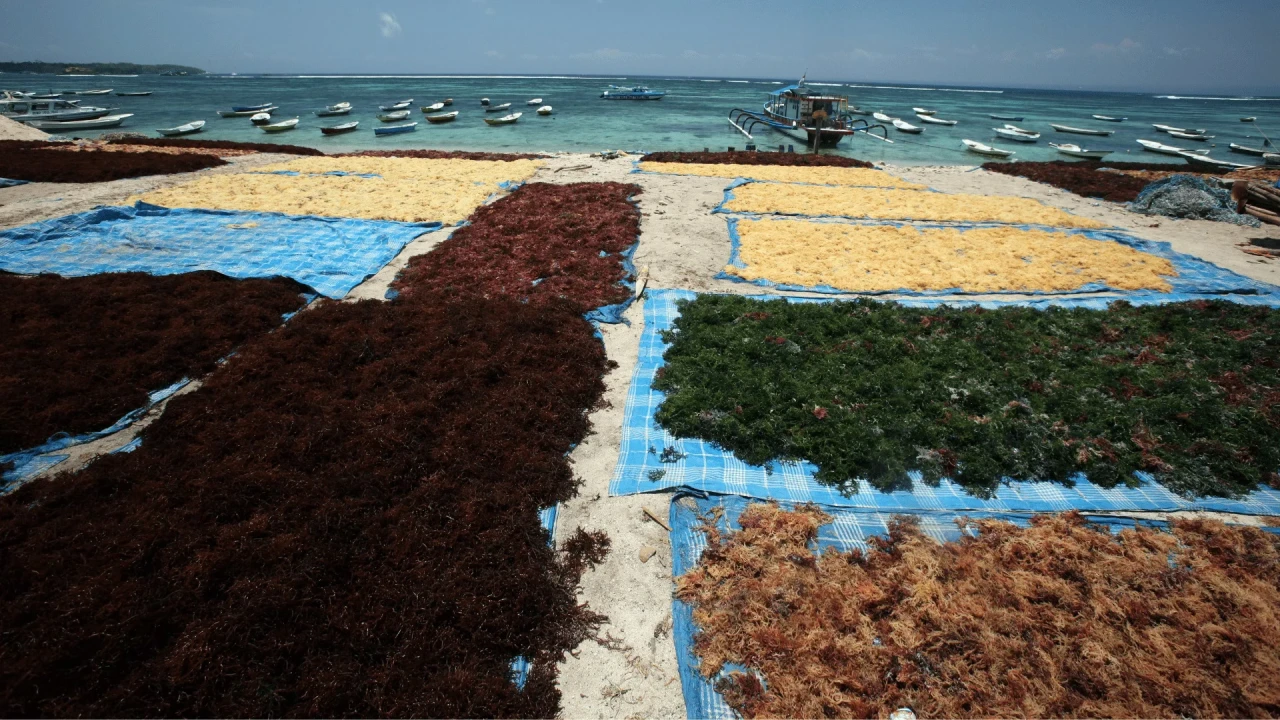Now not only the most beautiful and dangerous beaches will attract tourists to Nusa Penida. Farms with seaweed want to become a worthy competitor to Bali's rice terraces. The goal of local officials is to make them as popular and recognizable so that farmers can not only get their share of tourism revenue but also sell their products to travelers - goods made from seaweed.

The idea was proposed by the head of the Regional Agency for Research and Innovation of Klungkung, Ketut Budiarta. He believes that these two sectors can support each other. On the one hand, tourists will have another reason to visit Nusa Penida and stay there longer, on the other hand, seaweed producers will start earning more. After all, income inequality among the island's residents is currently too high. 39% of the local population live at or below the poverty line. In fact, money is only available to those involved in the tourism sector, which is a minority. 60 percent of the population are workers in agriculture - farmers and fishermen. Many of those who lost their jobs during the Covid-19 pandemic are now growing seaweed simply because there is no alternative. Nusa Penida is not very suitable for working with other crops.
At the same time, farmers constantly face various problems. These include unstable prices, pests. This often prevents the creation of high-quality products from seaweed. But the development of the tourism sector, attracting investment to this process, can support farmers. Additional funding will allow the use of various innovative developments in production.
All this will allow us to further increase prices for seaweed products. By the way, work is already underway on this. Since 2020 (when many people lost their jobs in tourism), there has been a program under which farmers are trained, helped to identify locations for seaweed cultivation and packaging, create production facilities, and infrastructure. Thanks to this, production volume increased to 11 thousand tons in 2021 and to 15 thousand tons in 2023.
"According to the results of the 2023 agricultural census, the total production volume of seaweed is 15,468,525 tons, produced by 1066 farmers," said Budiarta.
Women from the village of Suana have united and started producing crackers based on these plants. And in the village of Jungutbatu, under the Wisu brand, a dishwashing liquid and hand soap based on seaweed have been released. These products can be not only souvenirs for tourists, but also purchased by local hotels and restaurants. Moreover, seaweed also have a lot of beneficial properties.
For example, doctors say that when consumed, they cleanse the liver, improve metabolism, rejuvenate the body, and even improve eyesight. It is believed that people who eat seaweed at least twice a week are less likely to get sick, have a strong immune system, and live longer than their peers.
In cosmetology, it is one of the oldest ingredients. Products with seaweed nourish the skin, contribute to its regeneration, improve blood circulation, and regulate the acid-base balance. Therefore, they are often found in rejuvenating creams and masks.
Thanks to the presence of alginic acid, seaweed can remove harmful substances from the body. They have anti-inflammatory properties and normalize the functioning of sebaceous glands.
So it turns out that everyone wins from the development of this sector of the Indonesian business: both buyers and producers. But most importantly, the increasing popularity of seaweed farms will become one of the measures to eradicate poverty in rural areas of Nusa Penida island and contribute to the development of the "blue economy".
And tourists will begin to distribute themselves more evenly across the island, as they will now be interested not only in natural beauty but also in seaweed plantations.
You can add one right now!